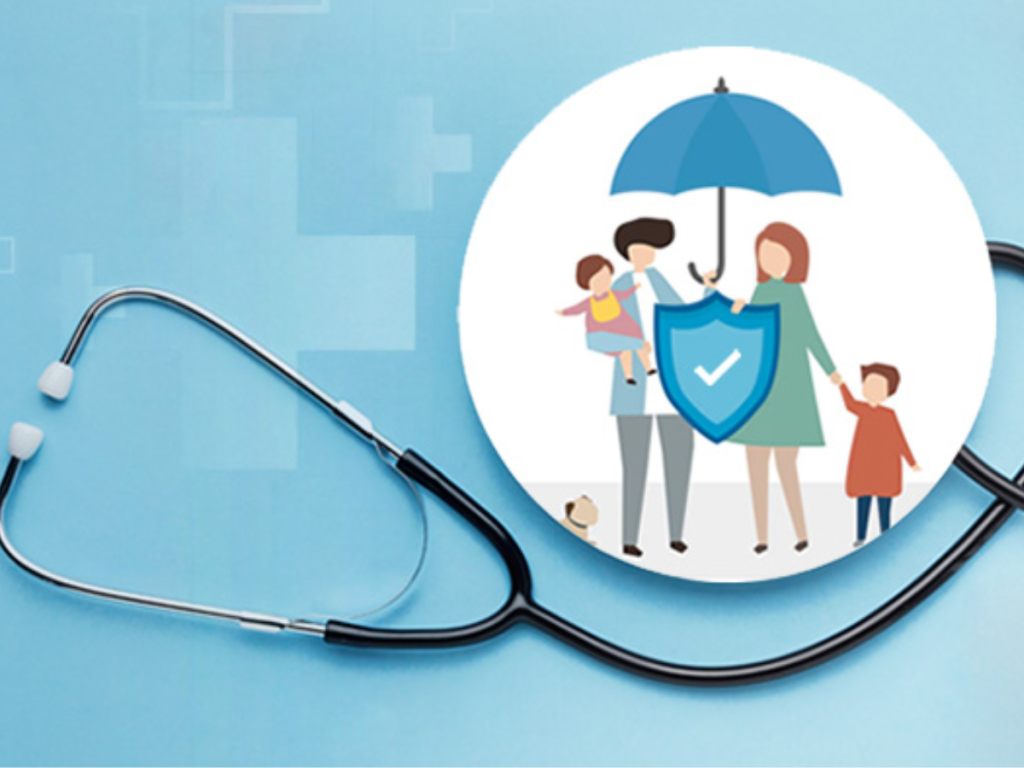Introduction
Health insurance is one of those things that most people don’t think about—until they desperately need it. And even when they do have it, many believe that one plan is enough. After all, why would you need more than one layer of protection? The answer is both simple and sobering: medical emergencies are unpredictable, expensive, and can easily exceed the coverage limits or exclusions of a primary plan. A backup health insurance plan acts as your financial safety net, helping you bridge the gap between what your primary insurance covers and what real-world health crises demand. In critical situations, having that extra layer can mean the difference between recovery and ruin.
Let’s consider a scenario. Imagine you’re in an accident or diagnosed with a life-threatening illness. You receive immediate treatment, surgeries, extended hospital stays, rehabilitation, and perhaps even travel to access specialized care. Now think of all the uncovered expenses: ambulance services not included in your plan, post-treatment therapies, medications not in your formulary, or hospitalization that exceeds the cap of your basic insurance. These costs add up quickly, and in many countries, particularly those without universal healthcare, they can spiral into tens or hundreds of thousands of dollars. A backup health insurance plan can absorb these overflows, saving your savings, assets, and mental peace.
What exactly is a backup health insurance plan? It could be a secondary comprehensive health insurance policy, critical illness cover, a top-up or super top-up policy, or even a fixed benefit plan that pays out lump sums for specific diagnoses. The concept revolves around having a second line of defense against high medical expenses. Let’s explore why this backup is increasingly becoming a necessity, not a luxury.
1. Health Insurance Has Limits—Literally and Figuratively
Most people assume that their primary health insurance will take care of any medical need. Unfortunately, this isn’t always the case. Policies come with sub-limits, room rent caps, co-pay clauses, waiting periods, and network restrictions. For example, if your policy only covers ₹5 lakh or $10,000 annually, and your treatment costs ₹15 lakh or $30,000, you’re responsible for the difference. Some plans may also deny coverage based on pre-existing conditions or if the treatment doesn’t fall under their predefined coverage.
A backup policy mitigates these risks. If your primary policy is exhausted or doesn’t cover a specific aspect of treatment, your secondary insurance can kick in. This ensures continuity of care without putting financial strain on your family.
2. Rising Healthcare Costs
Medical inflation is outpacing general inflation by a significant margin in many parts of the world. As hospitals upgrade equipment, adopt advanced technologies, and recruit specialized talent, the cost of care rises. A procedure that cost $5,000 five years ago might now cost $15,000 or more.
Even a relatively simple hospitalization can leave you with a steep bill once diagnostics, hospital stay, doctor fees, and post-treatment medications are factored in. For severe conditions like cancer, cardiac diseases, or neurological disorders, the bills can be astronomical. In such scenarios, your base policy might not be enough to cushion the blow.
A super top-up or critical illness plan can offer higher coverage at a lower premium. These plans often work once your base coverage is exhausted and are specifically designed to address large hospital bills. With a backup plan, you’re financially prepared for even the most expensive care.
3. Financial Stability During Recovery
Recovering from a health crisis is a long journey. It doesn’t stop at surgery or discharge from the hospital. Many patients require months of physical therapy, follow-ups, medicines, home care, and mental health support. In addition to medical expenses, there’s often a loss of income—especially if you’re self-employed or your employer doesn’t offer extended paid medical leave.
A backup health plan, particularly one that includes fixed benefits or income replacement components, can provide cash payouts during your recovery period. This money can be used for day-to-day living expenses, children’s education, rent, EMIs, or any other commitments that don’t pause just because you’re unwell. It ensures you and your family don’t have to choose between health and survival.
4. Specialized Treatment or Overseas Medical Care
Sometimes, the treatment you need isn’t available in your city or country. Specialized cancer treatment centers, advanced surgeries, or rare disease clinics may only exist in major metro cities or abroad. Traveling for medical care adds layers of expenses—flight tickets, accommodation, international hospital bills, and associated costs like food and caregiving.
Most standard insurance policies do not cover treatment abroad. Some only provide reimbursement within the country or limit coverage to network hospitals. A backup international health insurance policy, or a policy with overseas treatment inclusion, can take care of this.
Such plans offer peace of mind when the best care available happens to be across borders. They ensure that your treatment decisions are driven by need, not cost or geography.
5. Protection Against Critical Illnesses
Critical illness insurance is a specific kind of backup plan. It pays out a lump sum upon diagnosis of serious diseases like cancer, heart attack, stroke, kidney failure, or organ transplants. These illnesses are life-altering—not just medically, but financially and emotionally.
The advantage of critical illness plans is that they offer financial flexibility. You receive a one-time payment regardless of actual hospital bills, and this money can be used however you wish: to pay for treatment, modify your home, travel for a second opinion, or even replace income while you recover.
Pairing such a plan with your primary insurance ensures you’re not just covered for hospital stays but also for the many invisible costs that come with serious health challenges.
6. Peace of Mind for Your Family
In many families, a single person—often the breadwinner—handles all financial responsibilities. If that person falls ill and expenses mount, the entire household is affected. Debts can pile up, savings can vanish, and future plans like children’s education or retirement can be derailed.
Having a backup health insurance plan can protect not just you, but your dependents. They won’t be forced to take on loans, sell assets, or make emotionally painful decisions in the middle of a health emergency. Knowing there’s a financial cushion brings emotional relief during already difficult times.
7. Greater Choice and Control in Healthcare Decisions
With limited insurance, you might be forced to choose between cost and quality. Do you go to the best hospital, or the cheapest one? Do you opt for the best specialist, or one that’s in your network? Do you follow up with advanced rehab or skip it because it’s not covered?
A secondary insurance policy gives you greater autonomy. You can prioritize the best possible care without fearing financial consequences. That freedom can significantly improve your recovery prospects and long-term outcomes.
8. It Complements Government or Employer Coverage
Many people assume their employer’s group health plan is sufficient. While employer-provided insurance is valuable, it often comes with limitations. Coverage amounts are typically low, and the plan ends if you leave the job or retire. Similarly, government schemes may not cover private hospitals or all types of illnesses.
A personal backup plan ensures you’re not dependent on external employment or government changes. It travels with you through job switches, relocations, and retirement. It acts as a consistent support system no matter where life takes you.
9. Tailored Coverage for Your Lifestyle and Needs
One-size-fits-all doesn’t apply to health. Your medical needs may differ based on age, lifestyle, family history, profession, or location. A backup health plan lets you customize your protection. For example, someone with a family history of heart disease can buy a heart-specific critical illness plan. A sportsperson can opt for accident-focused coverage. A frequent traveler may choose global coverage.
The ability to personalize coverage ensures your plan aligns with your risks, not just generic averages.
10. A Small Premium for Massive Protection
Backup health insurance is surprisingly affordable. Top-up or super top-up plans cost a fraction of what regular health plans do because they only activate after a threshold is crossed (known as the deductible). Similarly, critical illness plans are relatively cheap considering the lump sum payout they offer.
For a modest annual premium, you get access to potentially lakhs or crores in additional coverage. This cost-benefit ratio makes it one of the smartest financial decisions you can make—especially when the alternative is burning through savings or falling into debt.
Conclusion: Invest in Health, Invest in Security
In an age where medical advancements are saving lives but increasing costs, relying solely on a single health insurance policy is a risky gamble. A backup health insurance plan is not about being paranoid—it’s about being prepared. It’s an investment not just in your health, but in your financial future, your family’s stability, and your peace of mind.
Think of health insurance as your body armor. A single layer might hold during minor attacks, but what about when the big blows come—accidents, surgeries, chronic illnesses, or prolonged treatment? A second layer ensures the impact doesn’t break you financially.
You insure your car, your house, even your phone. Isn’t your health—and by extension, your life’s savings—worth double protection?
Take action today. Review your existing health insurance. Understand its limits. And then, explore backup options that fill the gaps. Whether it’s a super top-up plan, a critical illness policy, or international coverage, choose what fits your life. Because when crisis hits, you don’t want to rely on luck—you want to rely on planning.
In the end, having a backup health insurance plan is not just about avoiding ruin. It’s about empowering yourself with the confidence that no matter what health challenges come your way, you’re financially equipped to handle them—with dignity, quality care, and hope for a healthier tomorrow.

